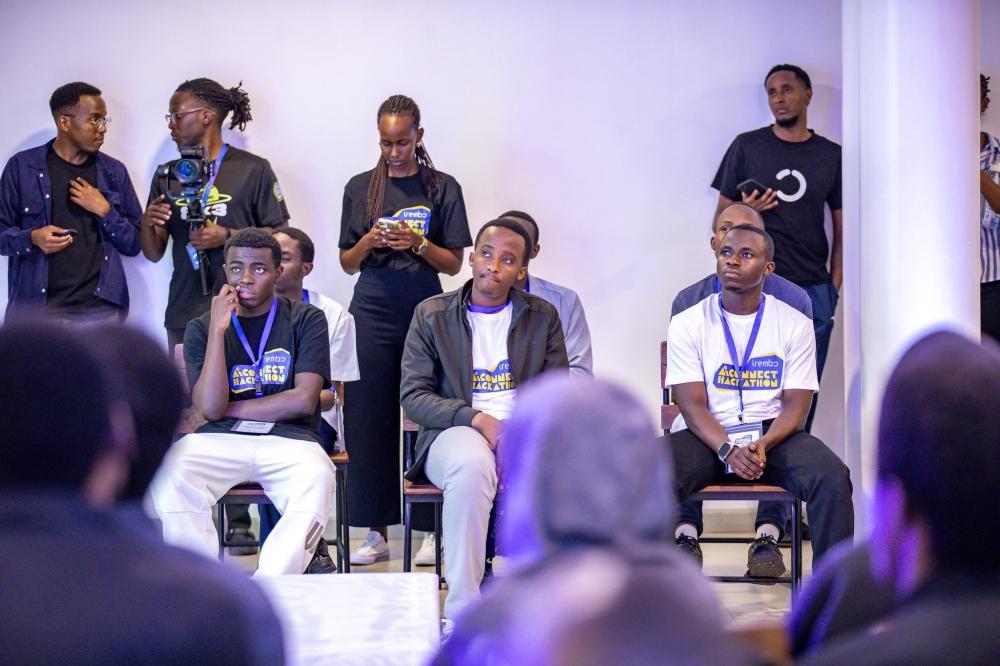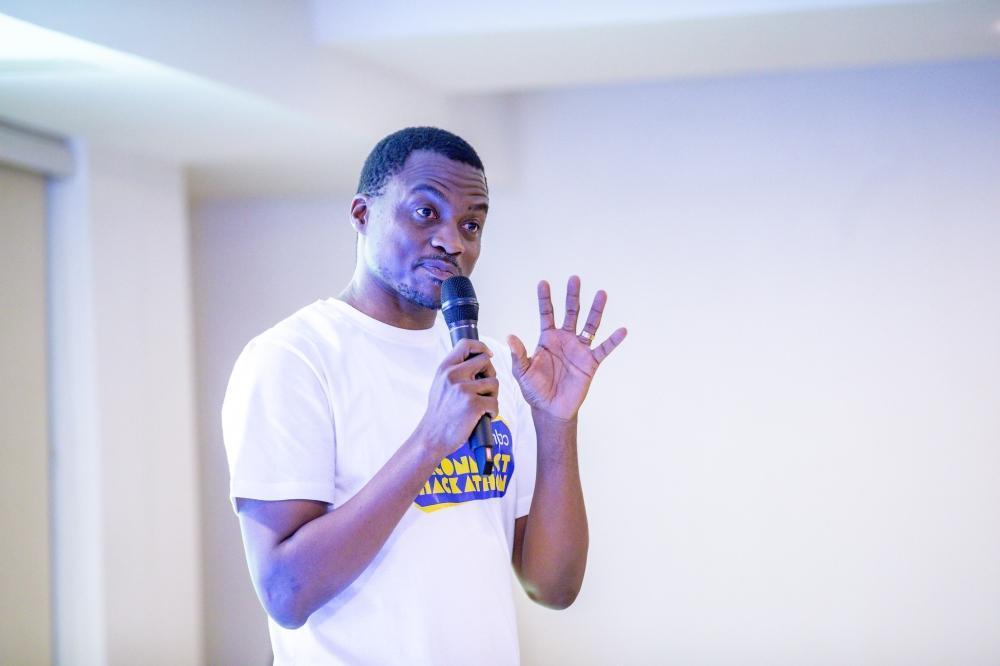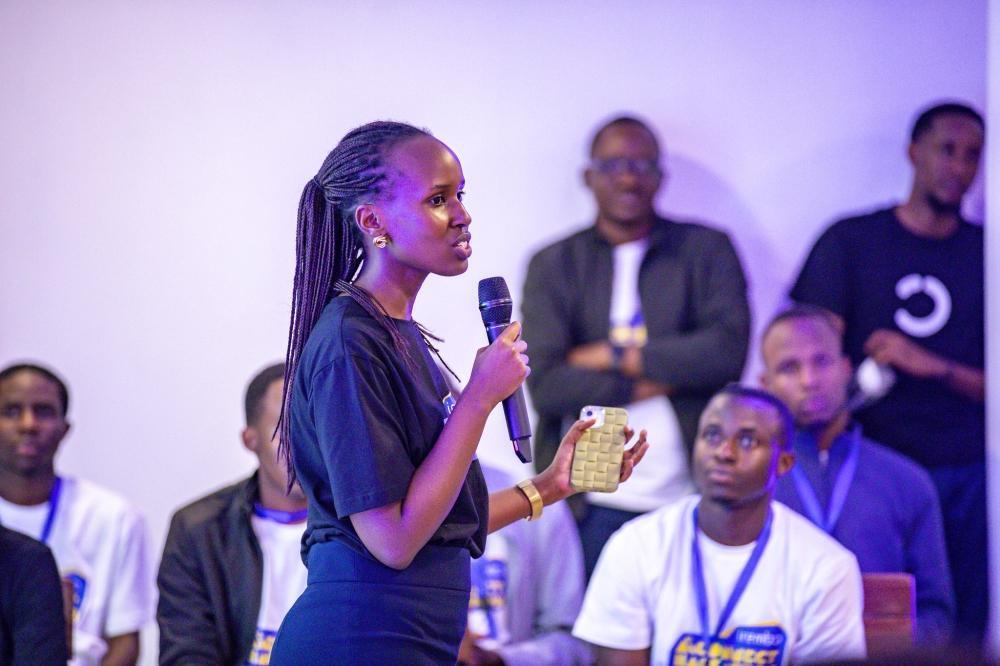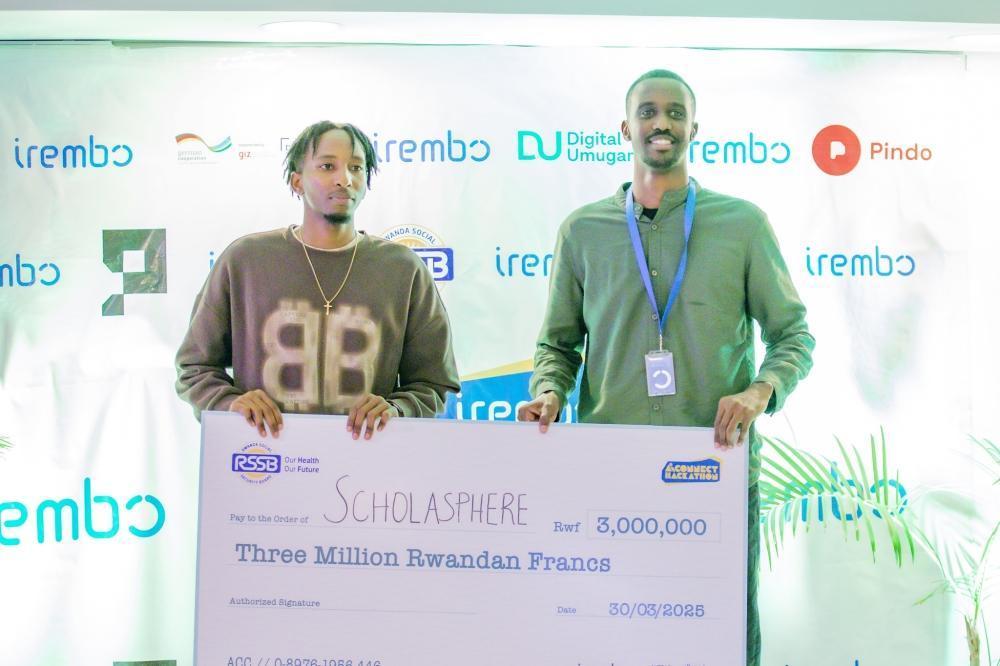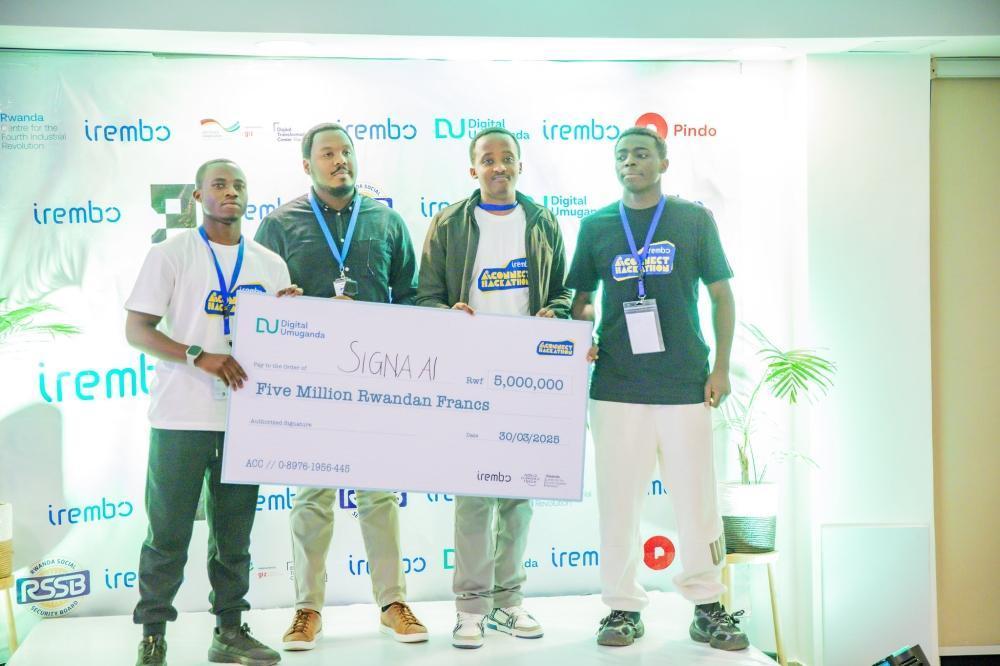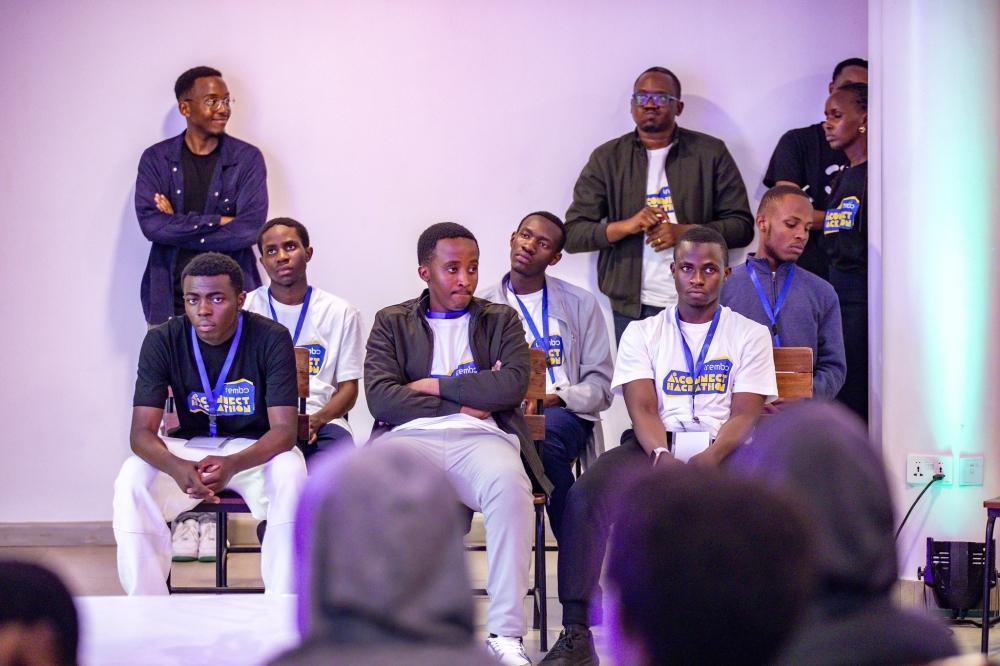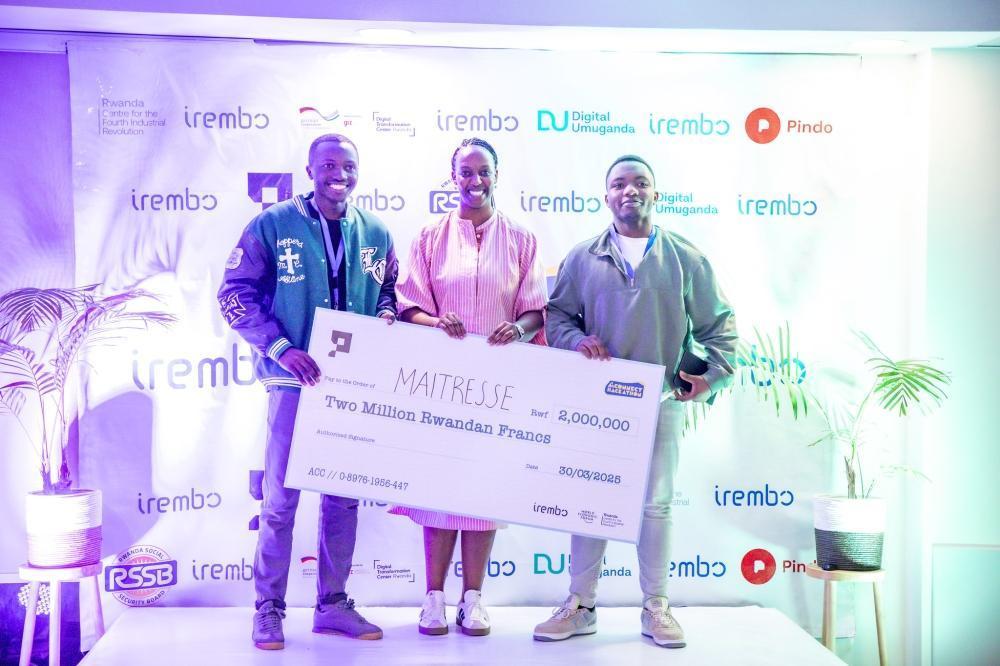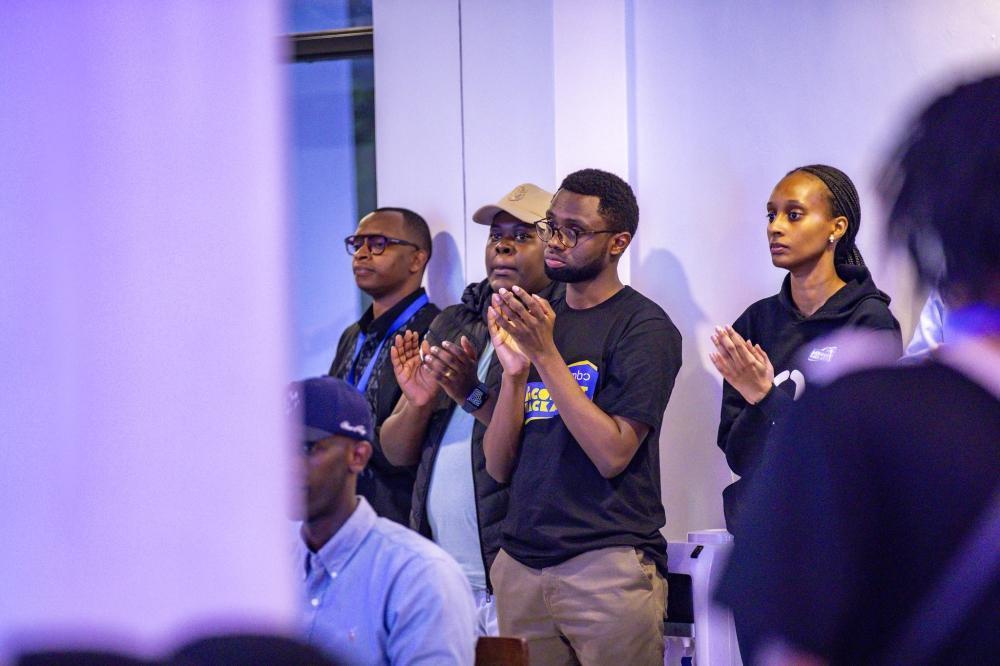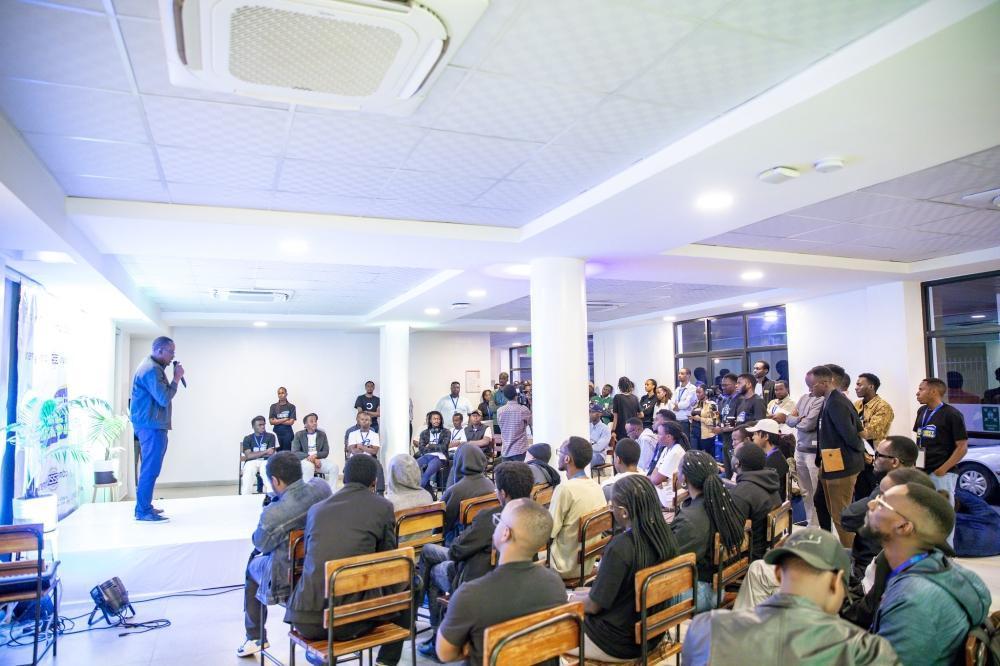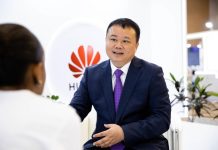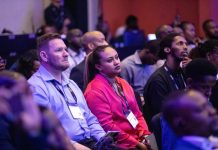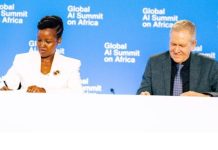Heritier Bahizi
Africa-Press – Rwanda. Building on the success of its first edition, Irembo, in collaboration with the Centre for the Fourth Industrial Revolution (C4IR), hosted the second annual AI Connect Hackathon. Designed to foster innovation, challenge tech enthusiasts, and develop AI-powered solutions with real-world impact, the event brought together some of the brightest minds in the field.
From March 28 to 30, developers gathered at Irembo Campus in Nyarutarama, racing against the clock to create groundbreaking AI applications. Eighteen selected teams—comprising developers, data scientists, and AI innovators—had less than 48 hours to build and present their solutions.
Three standout projects earned a combined Rwf10 million in seed funding.
Taking first place was Signa AI, an assistive tool enabling individuals with speech impairments to communicate using sign language. Scholasphere, an AI-powered platform guiding students in educational and career paths, secured the second spot, while Maitrrsse, an AI tutoring solution, finished as the second runner-up.
The hackathon provided a unique platform for exploring cutting-edge AI technologies, with participants tackling challenges in sectors such as government services, fintech, healthcare, education, smart cities, and climate change.
Odilo Rugamba, Systems Architecture Engineer at the Rwanda Information Society Authority (RISA), emphasized the government’s ongoing efforts to integrate AI into service delivery.
“We’re developing a data hub that consolidates information across institutions to enhance efficiency. Many of the projects showcased here address critical issues like accessibility—assisting those without smartphones, high-speed internet, or literacy. AI has the potential to bridge these gaps, particularly in solutions supporting individuals with disabilities,” he noted.
Addressing concerns about language barriers in AI development, Rugamba acknowledged that while major languages like English have an advantage, Rwanda is witnessing a surge in AI-driven solutions tailored for Kinyarwanda speakers. “Both the government and private sector are investing in bridging communication gaps, particularly in tourism-heavy areas where visitors interact with non-English-speaking communities,” he added.
Rugamba also highlighted Rwanda’s commitment to fostering innovation, pointing to policies that encourage private-sector collaboration. “We don’t spend a decade drafting roadmaps—we engage local innovators to devise solutions in real time. Through initiatives like Hanga Hubs, we provide funding, office space, and investor connections.
These innovations aren’t just solving Rwandan challenges; they are scalable, with many startups now expanding internationally.”
A competitive showcase of AI excellence
Peter Charles Djomga Touko, Director of Software Engineering at Irembo, hailed the hackathon as a success.
Patrick Ndjientcheu, Chief Product and Technology Officer at Irembo
“We started with 80 applications, narrowing it down to 20 finalists based on their project proposals and expertise. Out of those, 18 teams successfully delivered working solutions that addressed real-world challenges using AI. From voice AI and translation tools to education and even agriculture-based solutions detecting plant diseases, the quality of submissions was outstanding. Selecting the top three was no easy task,” he remarked.
When asked why Irembo continues to host hackathons, he emphasized Irembo’s commitment to fostering an environment where innovators can thrive.
“One of our primary objectives is to create a space where doers can build, test, and refine their ideas,” he explained. “A major challenge for engineers is having the right conditions to develop solutions. That’s why we use the 48-hour format—it pushes participants to focus, collaborate, and deliver results.
“We have two key goals: first, to stimulate the local tech ecosystem, and second, to identify and support talent that can contribute to our innovation efforts. In fact, from our last hackathon, one of the standout participants joined our team and has since helped us accelerate service delivery. His tools have been instrumental in fast-tracking key projects, including an upcoming rollout with the Rwanda Development Board (RDB), set to go live in just a few days.”
Did the hackathon achieve its goals?
Reflecting on whether the event met its objectives, organizers were clear: “The first question was whether we have enough tech talent in the ecosystem. The answer is yes—we received 80 applications. The next question was whether the talent is high-quality. Again, the answer is yes. The solutions presented demonstrated impressive technical ability and innovation.”
Looking ahead, Irembo plans to go beyond hackathons by creating a more structured AI ecosystem. “We want to establish a community where participants can stay connected, exchange ideas, and collaborate beyond the competition. This kind of network will ensure sustained impact, allowing the talent we’ve identified to develop solutions that have tangible benefits for the country.”
Championing inclusivity with AI: The story of Signa AI
Giovanni Kalisa, who developed Signa AI and claimed victory at the second AI Connect Hackathon, is a shining example of the young visionaries advancing AI in Rwanda.
“I’ve been programming for four years now,” said Kalisa, who, at just 18, graduated last year from the Rwanda Coding Academy. “The skills we learned at school were instrumental in developing our hackathon project.”
Signa AI is designed to bridge the communication gap between individuals with hearing and speech impairments. “Our goal is inclusivity—ensuring that students who are deaf or mute can learn in a supportive environment without their teachers struggling to communicate with them,” Kalisa explained. “With Signa AI, spoken words are translated into sign language in real time. Our demo shows how the system converts text or audio into sign language visuals.”
For Kalisa, winning the hackathon was a milestone, but the real reward was the experience. “It was incredible. I couldn’t have done it without my team. We were also fortunate to have access to Irembo’s resources, which played a huge role in helping us refine our solution.”
Looking to the future, Kalisa and his team have ambitious plans. “Next, we want to integrate Signa AI into schools. Our goal is to collaborate with educational institutions so they can adopt our product and make classrooms more inclusive. But beyond schools, we envision Signa AI becoming a tool for everyday use.”
Funding remains a key focus for the project’s next phase. “To scale this solution, financial support is crucial. We’re exploring ways to leverage the resources and exposure we’ve gained from the hackathon. If all goes according to plan, we expect to finalize the project within five months, followed by a full-scale launch and marketing campaign.”
The hackathon provided a unique platform for exploring cutting-edge AI technologies, with participants tackling challenges in sectors such as government services, fintech, healthcare, education, smart cities.
Scholasphere, an AI-powered platform guiding students in educational and career paths, secured the second spot
Signa AI, an assistive tool enabling individuals with speech impairments to communicate using sign language, was recognised the winner of the second edition
AI Connect Hackathon was designed to foster innovation, challenge tech enthusiasts, and develop AI-powered solutions
Maitrrsse, an AI tutoring solution, finished as the second runner-up
Source: The New Times
For More News And Analysis About Rwanda Follow Africa-Press

